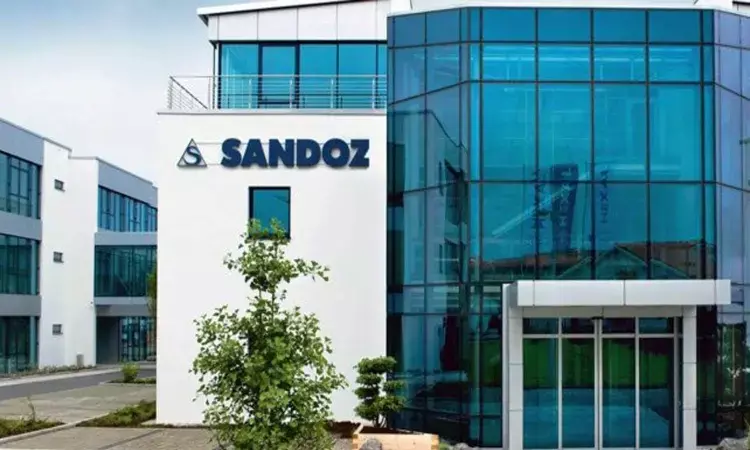- Home
- Medical news & Guidelines
- Anesthesiology
- Cardiology and CTVS
- Critical Care
- Dentistry
- Dermatology
- Diabetes and Endocrinology
- ENT
- Gastroenterology
- Medicine
- Nephrology
- Neurology
- Obstretics-Gynaecology
- Oncology
- Ophthalmology
- Orthopaedics
- Pediatrics-Neonatology
- Psychiatry
- Pulmonology
- Radiology
- Surgery
- Urology
- Laboratory Medicine
- Diet
- Nursing
- Paramedical
- Physiotherapy
- Health news
- Fact Check
- Bone Health Fact Check
- Brain Health Fact Check
- Cancer Related Fact Check
- Child Care Fact Check
- Dental and oral health fact check
- Diabetes and metabolic health fact check
- Diet and Nutrition Fact Check
- Eye and ENT Care Fact Check
- Fitness fact check
- Gut health fact check
- Heart health fact check
- Kidney health fact check
- Medical education fact check
- Men's health fact check
- Respiratory fact check
- Skin and hair care fact check
- Vaccine and Immunization fact check
- Women's health fact check
- AYUSH
- State News
- Andaman and Nicobar Islands
- Andhra Pradesh
- Arunachal Pradesh
- Assam
- Bihar
- Chandigarh
- Chattisgarh
- Dadra and Nagar Haveli
- Daman and Diu
- Delhi
- Goa
- Gujarat
- Haryana
- Himachal Pradesh
- Jammu & Kashmir
- Jharkhand
- Karnataka
- Kerala
- Ladakh
- Lakshadweep
- Madhya Pradesh
- Maharashtra
- Manipur
- Meghalaya
- Mizoram
- Nagaland
- Odisha
- Puducherry
- Punjab
- Rajasthan
- Sikkim
- Tamil Nadu
- Telangana
- Tripura
- Uttar Pradesh
- Uttrakhand
- West Bengal
- Medical Education
- Industry
USFDA accepts Biologics License Application for proposed biosimilar denosumab: Sandoz

Denosumab is a human monoclonal antibody designed to bind to the RANKL protein, an activator of osteoclasts (cells involved in breaking down bone tissue).
Basel: Sandoz has announced that the US Food and Drug Administration (USFDA) has accepted its Biologics License Application (BLA) for proposed biosimilar denosumab.
“We are proud to be among the first to submit a BLA for a denosumab biosimilar as, if approved, it could increase patient access to an affordable, high-quality, potentially disease-modifying treatment across the US, while also delivering savings for healthcare systems.”
In the US alone, more than 10 million adults over age 50 are estimated to have osteoporosis, of whom more than 80% are women. It is predicted that one in two of these women and one in four men will have an osteoporosis-related fracture in their lifetimes. Osteoporosis-related fractures may lead to diminished quality of life, disability, and even death.
The BLA includes a comprehensive analytical and clinical data package, including data from the Phase I/III ROSALIA study. Results confirmed that the proposed biosimilar denosumab matches the reference medicine in terms of pharmacokinetics, pharmacodynamics, efficacy, safety, and immunogenicity in women with postmenopausal osteoporosis; and contributes to demonstration of similarity, which is the basis for use in all indications.
Denosumab is a human monoclonal antibody designed to bind to the RANKL protein, an activator of osteoclasts (cells involved in breaking down bone tissue). By binding to and inhibiting RANKL, denosumab decreases the production and activity of osteoclasts, resulting in a reduction of bone loss, and subsequently the likelihood of fractures and other serious bone conditions.
Read also: Novartis division Sandoz to set up Global Capability Centre in Hyderabad
Ruchika Sharma joined Medical Dialogue as an Correspondent for the Business Section in 2019. She covers all the updates in the Pharmaceutical field, Policy, Insurance, Business Healthcare, Medical News, Health News, Pharma News, Healthcare and Investment. She has completed her B.Com from Delhi University and then pursued postgraduation in M.Com. She can be contacted at editorial@medicaldialogues.in Contact no. 011-43720751


